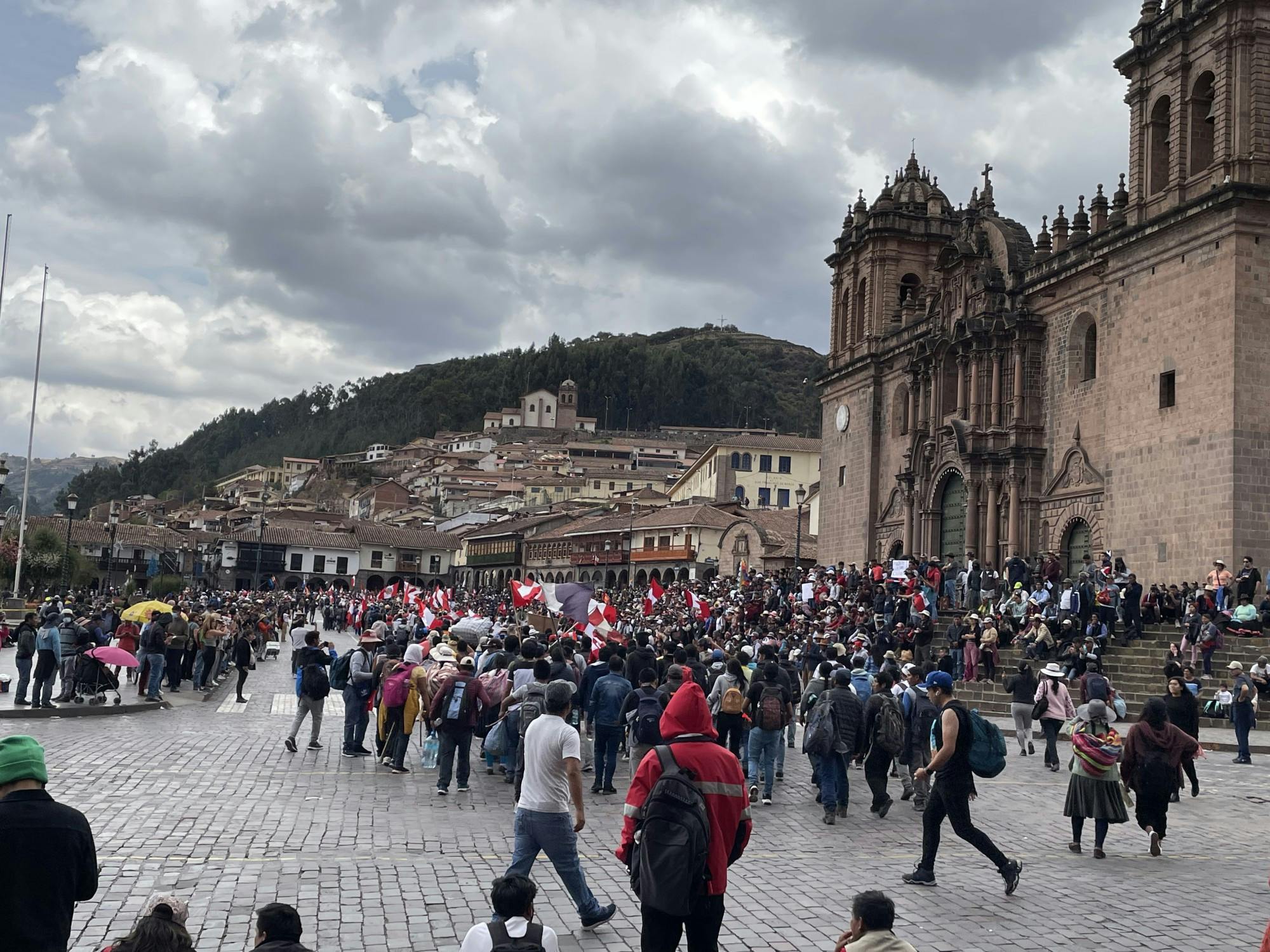Students who traveled to Peru as members of fall term’s ECON 70, “Immersion Experience in Applied Economics and Policy” — a class that includes traveling to a country of study during the interim break — were initially trapped in the country for an additional two days because of the political unrest from a coup instituted by its then-president, according to the course’s professor Diego Comin.
Peruvian president Pedro Castillo announced on Dec. 7 — three days into what was supposed to be a nine-day trip — that he would dissolve his government and install an emergency regime amid the Congress’ attempts to impeach Castillo for the third time, according to the New York Times. Protests from Castillo’s supporters prevented the students from leaving Cusco to travel to the airport in Lima, Comin said.
According to Kevin Berghuis ’23, a student in the class, Castillo’s attempted coup occurred during the class’s last day in the nation’s capital of Lima, before heading to Cusco. At the time of Castillo’s announcement, Berghuis said that there was no immediate cause for alarm, and the group traveled to Cusco as planned.
“There was a lot of uncertainty at first because we didn’t know whether the military would support [Castillo’s] action … and then we see that there’s a statement from the military thankfully saying that they condemn his action,” Berguis said. “In that moment, it seemed like the crisis was mitigated.”
Berghuis said that the unrest seemed more evident a week later, after the class had left Lima and arrived in Cusco.
“We went to the Sacred Valley, the Cusco region, and that’s when tensions started to become apparent,” Berguis said. “Cusco is located in the Highlands and that’s primarily the home base of former President Castillo’s supporters.”
According to Comin, the political unrest became more visible when demonstrations escalated on Dec. 13 in the southern region of Peru, where Cusco is located.
“There were a lot of demonstrations in Cusco, and most of them were not very violent, but as the day progressed, you could see how … [there was] broken glasses, there was trash on the streets,” Comin said. “But everybody was safe. No student was in any danger or anything like that.”
Berghuis said that while the demonstrations led to blocked roads and obstructed infrastructure, it did not affect the majority of the trip — only the group’s departure, he said.
Due to the demonstrations — many of them at airports in the southern region, according to Berghuis and Comin — the group’s return from Cusco to Lima was postponed from Wednesday, Dec. 14 to Friday.
“On Tuesday, demonstrations escalated [and] a few airports in the south were taken by demonstrators and so immediately several airports were closed in the south,” Comin said.
Sunint Bindra ’22 said that he was initially “stressed” about the political instability in Peru but was satisfied with how the College handled the situation. Bindra said that during the protests in Cusco, the tour guides kept the group safe.
“It was a little bit stressful,” he said. “I think we felt like [we were in] pretty capable hands.”
According to Bindra, students witnessed “relatively respectful” protests in Cusco during the daytime and added that he never saw any violent demonstrations but saw some property damage in Cusco.
“I never saw any violence per se,” he said. “I saw … in the main square, which is a five minute [or] three minute walk from the hotel, a lot of businesses had their window screens and stuff broken.”
According to Will Cook-Healy ’23, the demonstrations did not impact students’ final projects and academic experiences.
“The one real difficulty that the self coup failure introduced was a difficulty with respect to our getting out of Cusco at the very end of the trip,” Cook-Healy said. “We ended up spending an extra day or two in Cusco and then left.”
Despite the travel delay amid political uncertainty, Bindra said he found the trip to be beneficial, specifically citing the immersive experience and the course’s social impact focus as positive aspects of the experience.
“Peru’s an amazing and beautiful country [with] a lot to learn in terms of culture and history,” Bindra said. “I think the class is designed in a very intentional and productive way.”




